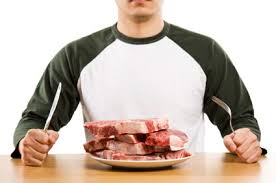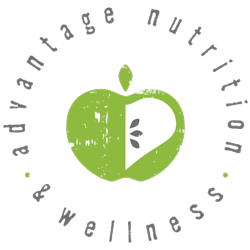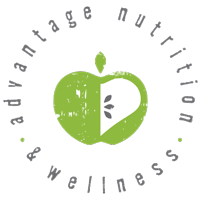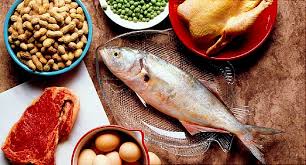Protein supplements, bars and shakes are common in today’s American diets, but sometimes they may not be necessary.
Don’t get me wrong, protein is an essential nutrient needed for optimal health. However, in order to quantify an amount of protein which would be considered “healthy” to consume, we must define each person’s unique and individual daily need. How much we “need” is predominantly based on one’s weight and activity levels.
The Recommended Daily Intake (RDI) for protein is 0.8 gram per kilogram of body weight per day for the average healthy adult. This equates to about 36 g of protein for 100# of body weight. Or, for example, about 3 ounces of chicken the size of the “palm of a woman’s palm” and one 5 oz Greek yogurt. As you can see from this example, consuming your daily protein requirements can be very easily done.
There are some conditions and circumstances which can increase protein needs for individuals above and beyond the typical RDI. Increased physical activity at/above moderate to high intensity activity most days of the week for more than 60-90 minutes will increase one’s protein requirement to 1.2 – 2.0 g/kg/day. That’s protein intakes at about double those for a sedentary individual. Most athletes have heard in the media that they need “more”, but how much is “more”? And, protein is safe right? Well, not all the time.

A big issue with athletes blindly consuming “more protein” in their daily diet is that the excessive use of protein can displace other essential nutrients such as carbohydrates and dietary fats, increase risk for dehydration, increase calcium losses, and also cause extra consumed calories being stored as excess body fat. Yikes, not great side effects for an athlete! Its important to balance your daily protein intakes with what your body can functionally use for optimal health and performance.
So how much protein is enough for an athlete? The Academy of Nutrition and Dietetics (AND) and the dietetic practice group SCAN (Sports, Cardiovascular and Wellness Nutrition Group), provide some great resources on this topic for athletes. Current body weight, weight change goals, duration of exercise, intensity of exercise as well as type of sport or training will all impact individual protein needs. The general guideline suggests 1.2 to 2.0 g/kg of body weight per day for athletes. With this guideline, the term “athlete” is defined as moderate to high-intensity activity lasting longer than 60-90 minutes per session for most days of the week. It is important to distinguish these criteria as most generally active and recreational athletes may not require as much additional protein intakes to support their health and performance. For the recreational athlete or the average exerciser, research suggests 1.1-1.4 g/kg of body weight per day for this type of athlete.
Just as in our previous example, lets look at a reference range of protein intakes for 100# of body weight. For every 100#, a competitive athlete’s daily protein intake would need to be equivalent to 55 – 91 grams of protein per day. This can be represented by 8 oz of chicken, 3 (8oz) glasses of milk , and 1 egg. So, if you are a 200# football player, yes, this example would even need to be doubled. As you can see from these food portions, it will become very critical for an athlete to space their protein intakes throughout their entire day to achieve the recommended protein intakes each day.
When we think of protein intakes it is mostly commonly the meat and dairy based foods we consider to meet our needs. While these food items do add up in protein very quickly, our plant based sources of protein can play a big part in meeting our total daily needs and cannot be overlooked. For example, a white bagel has 9 g protein, 1 cup cooked quinoa has 8 g protein, and 1/4 cup dry oats has 7 g of protein. One place all individuals can find protein in their diets is by choosing whole grain options and/or starchy vegetables at each meal.
So what about the quality of protein? Does it make a difference? Yes!! High quality or high biological value (HBV) protein sources are key for muscle health and repair. HBV sources include animal based items such as meat, poultry, fish, eggs and dairy and the plant based option of soy.
Do I need to use protein powder to meet my daily protein goals? Not necessarily. Most daily needs for protein intakes can be met through one’s daily whole food consumption. However, the use of protein powder in shakes can be a convenient “on-the-go” for anyone – especially first thing in the AM.
Even if I am not an athlete, should I space my protein evenly throughout my day? Yes again!! Research has shown that it is much better for everyone to space out your daily protein intakes at each meal (20-30 g of HBV protein each meal) for optimal protein synthesis in your body. So, no one should be skipping breakfast! Especially not missing your protein source at breakfast! Try to include a higher protein content food item such as Greek yogurt, egg/egg whites, peanut butter or peanut butter powders, and/or this would be the best time to mix up a shale with whey protein powder or even add some whey protein to power up your bowl of oatmeal.
Concerned about your protein needs? Wonder if you’re getting enough? Looking for nutritional guidance as a competitive athlete? ANW has a certified specialist in sports dietetics on staff who can assist you with a personalized plan to meet your daily protein needs – not too much, not too little, but just right! Contact ANW at (610)-443-1885 to schedule your session!




